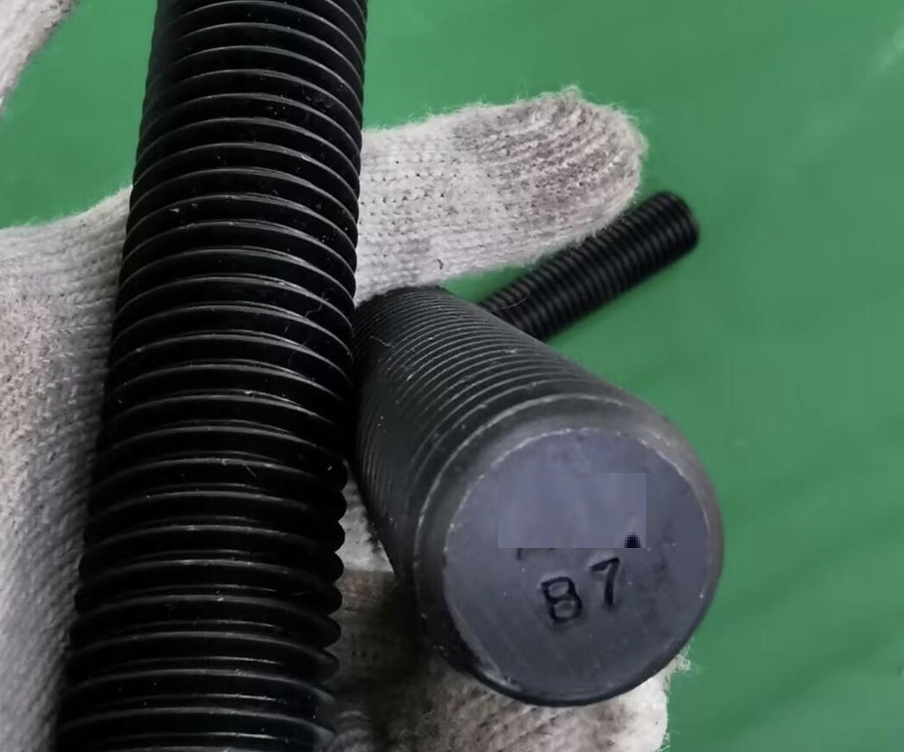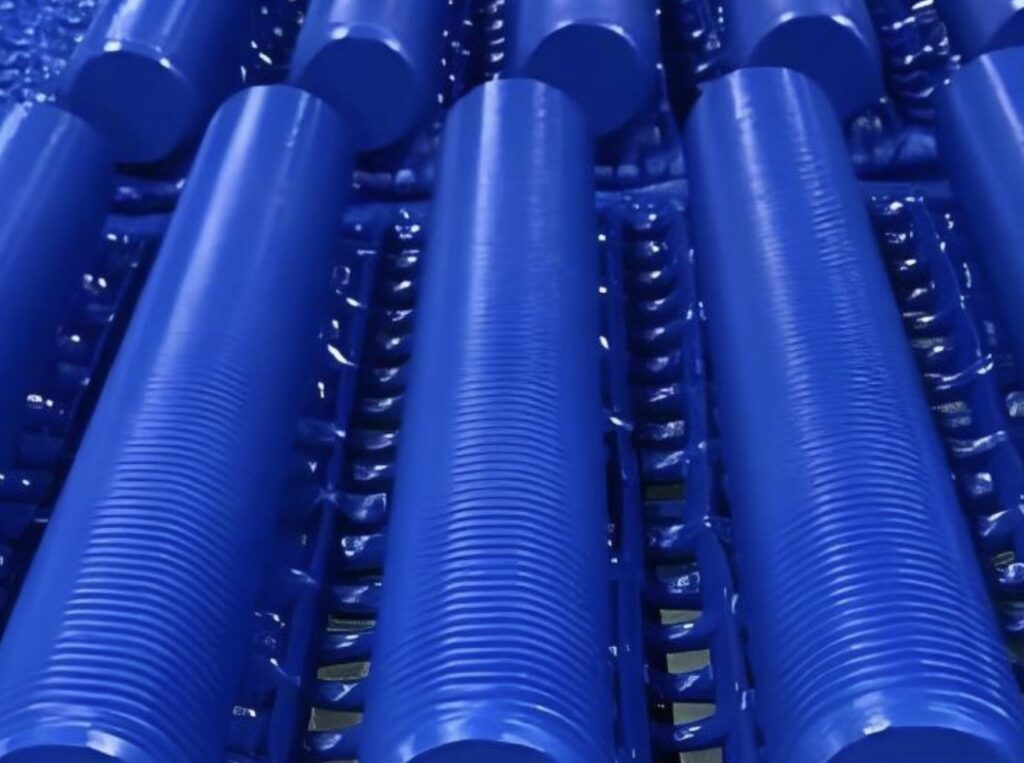Understanding the Mechanical and Chemical Differences of B7 vs. B7M Bolts
How to select the high-strength stud bolts for pressure vessels, flanges, or piping systems? As an Engineeer ,it is important to understand the difference between ASTM A193 Grade B7 and B7M. Though they loos the similar in material, these grades have different mechanical properties and are used in different applications—especially when corrosion resistance and stress corrosion cracking are concerns.
In this Articile, we will compare the ASTM A193 B7 vs. B7M stud bolts in terms of chemical composition, mechanical properties, heat treatment, marking, and applications.
What Is ASTM A193 Grade B7?
ASTM A193 Grade B7 is a chromium-molybdenum (Cr-Mo) alloy steel bolt grade, commonly used in high-temperature, high-pressure environments.
- Material: Chromium-Molybdenum Steel (typically AISI 4140/4142)
- Heat Treatment: Quenched and tempered
- Tensile Strength: Minimum 125 ksi (860 MPa)
- Yield Strength: Minimum 105 ksi (720 MPa)
- Hardness: Typically 35 HRC max
⬇️ Download the ASTM A193 B7 Specification (PDF)
What Is ASTM A193 Grade B7M?
ASTM A193 B7M is a modified version of B7, designed with lower hardness and strength to improve resistance to stress corrosion cracking in certain environments.
- Heat Treatment: Same base material as B7, but tempered to lower hardness
- Tensile Strength: 100 ksi – 125 ksi (690–860 MPa)
- Hardness: 235 HBW max (~22 HRC)
- Marking: Marked as “B7M” with manufacturer’s symbol
Applications:
- Sour gas environments (H₂S)
- Wet service where SSC (Stress Corrosion Cracking) is a risk
- Systems complying with NACE MR0175 / ISO 15156
⬇️ Download ASTM A193 B7M Stud Bolt Specification Now (PDF)
B7 vs. B7M Stud Bolt Comparison Table
The most notable difference from a manufacturing perspective is that when supplying A193 B7M bolts, each individual bolt or stud in the batch must be tested for hardness. 100% Hardness tested. A193 B7M fasteners also require a different type of heavy-duty hex nut ,which is ASTM A194 Grade 2HM.
| Property | ASTM A193 B7 | ASTM A193 B7M |
|---|---|---|
| Material | Cr-Mo Steel | Cr-Mo Steel |
| Heat Treatment | Quenched & tempered | Tempered to lower hardness |
| Tensile Strength | ≥ 125 ksi (860 MPa) | 100–125 ksi (690–860 MPa) |
| Hardness | ≤ 35 HRC | ≤ 235 HBW (~22 HRC) |
| SSC Resistance | Moderate | Improved (NACE compliant) |
| Application | General industrial | Sour service, H₂S environments |
| Marking | “B7” | “B7M” |
When to Choose B7M Over B7
Choose B7M stud bolts when:
- You’re working in H₂S (sour gas) environments.
- Your design needs to meet NACE MR0175 / ISO 15156.
- There is risk of hydrogen-induced cracking or stress corrosion cracking.
For general piping or high-pressure/temperature systems without H₂S exposure, B7 is sufficient and more economical.
B7 and B7M Stud Bolts Availablity
At SEMetal Group, we supply both ASTM A193 B7 and B7M stud bolts with full material traceability and certification.
Available Options:
- Sizes: ¼” to 4” diameter
- Lengths: Up to 3 meters (custom cut available)
- Threads: UNC / UNF / Metric
- Nuts: ASTM A194 Grade 2H, 2HM, 7, 7M available
- Coatings: Black oxide, zinc-plated, PTFE, hot-dip galvanized
- Certifications: EN 10204 3.1, NACE MR0175, ISO 9001
FAQs: B7 vs. B7M Stud Bolts
Q: Can I replace B7 with B7M bolts?
A: Not always. B7M has lower strength, so only use it if your system design allows it or requires NACE compliance.
Q: Are B7M bolts always required for sour service?
A: In most sour gas environments, yes. Always check with NACE MR0175 standards and your project specifications.
Q: How are B7M bolts tested?
A: B7M requires additional hardness testing after tempering to ensure it meets the ≤235 HBW requirement.


